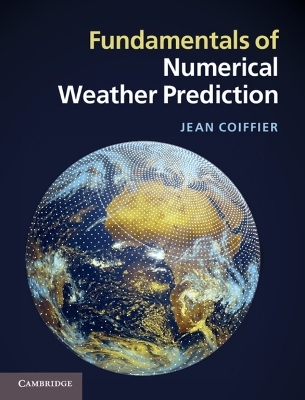
Fundamentals of Numerical Weather Prediction
Cambridge University Press (Verlag)
978-1-107-00103-9 (ISBN)
Numerical models have become essential tools in environmental science, particularly in weather forecasting and climate prediction. This book provides a comprehensive overview of the techniques used in these fields, with emphasis on the design of the most recent numerical models of the atmosphere. It presents a short history of numerical weather prediction and its evolution, before describing the various model equations and how to solve them numerically. It outlines the main elements of a meteorological forecast suite, and the theory is illustrated throughout with practical examples of operational models and parameterizations of physical processes. This book is founded on the author's many years of experience, as a scientist at Météo-France and teaching university-level courses. It is a practical and accessible textbook for graduate courses and a handy resource for researchers and professionals in atmospheric physics, meteorology and climatology, as well as the related disciplines of fluid dynamics, hydrology and oceanography.
Jean Coiffier is now retired from Météo-France, where he was Ingénieur en Chef des Ponts et Chaussées, and is a member of the Société Météorologique de France. His involvement in meteorological science began in 1968 at the new Algerian Meteorological Service, implementing elements of a modest meteorological forecast suite on a small computer, before joining the Direction de la Météorologie Nationale (later Météo-France) where he took part in the development and implementation of operational models. In 1989 he became the head of the General Forecast Office. He worked there until his retirement, also giving regular lectures on numerical weather prediction to students of the École Nationale de la Météorologie and training courses to professional forecasters. He also played an active role in realising Computed Aided Learning modules devoted to numerical modelling and forecasting methods.
Foreword to the French edition; Foreword to the English edition; Preface; Acknowledgements; List of symbols; 1. Half a century of numerical weather prediction; 2. Weather prediction equations; 3. Finite differences; 4. Spectral methods; 5. The effects of discretization; 6. Barotropic models; 7. Baroclinic model equations; 8. Some baroclinic models; 9. Physical parameterizations; 10. Operational forecasting; Appendix A. Examples of non-hydrostatic models; Further reading; References; Index.
| Erscheint lt. Verlag | 1.12.2011 |
|---|---|
| Zusatzinfo | 3 Tables, black and white; 10 Halftones, unspecified; 65 Line drawings, unspecified |
| Verlagsort | Cambridge |
| Sprache | englisch |
| Maße | 195 x 254 mm |
| Gewicht | 940 g |
| Themenwelt | Naturwissenschaften ► Biologie ► Ökologie / Naturschutz |
| Naturwissenschaften ► Geowissenschaften ► Meteorologie / Klimatologie | |
| ISBN-10 | 1-107-00103-X / 110700103X |
| ISBN-13 | 978-1-107-00103-9 / 9781107001039 |
| Zustand | Neuware |
| Haben Sie eine Frage zum Produkt? |
aus dem Bereich


